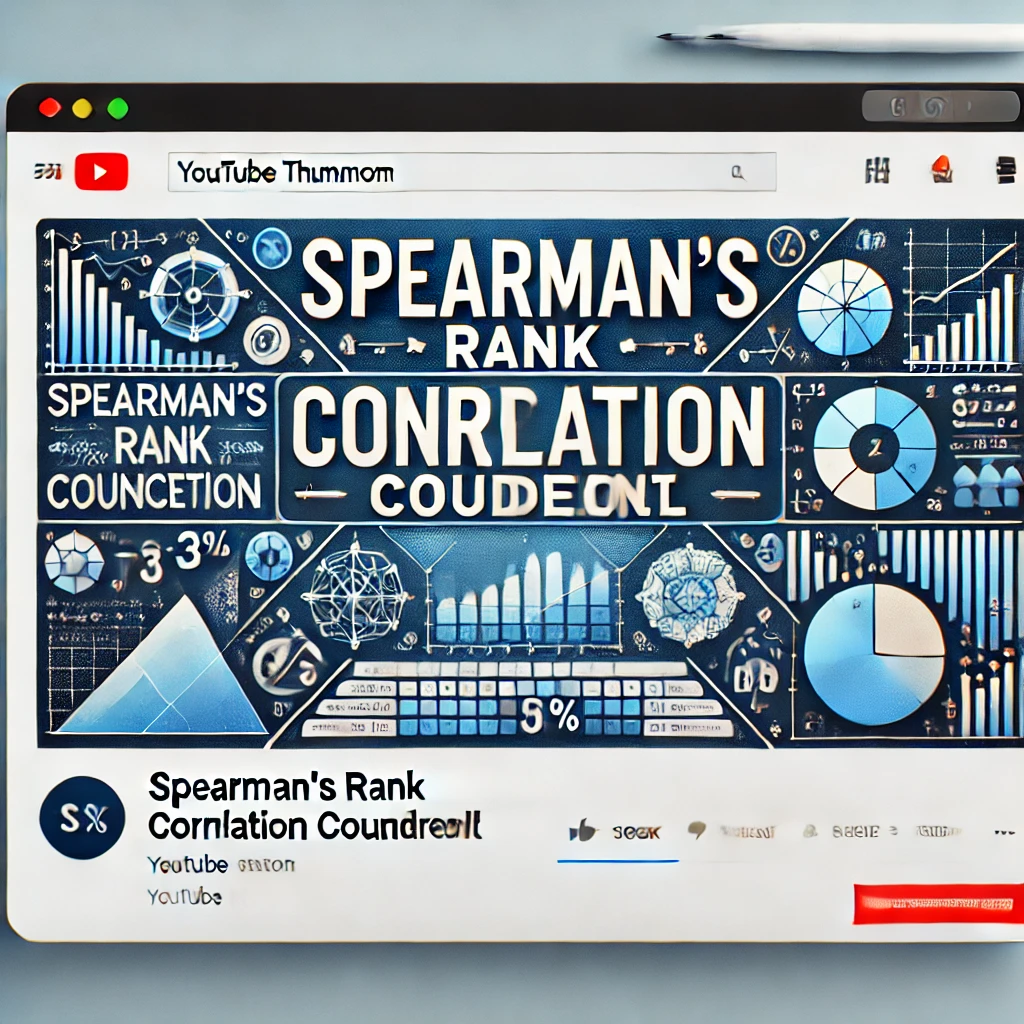Spearman’s Rank Correlation Coefficient
Data Science and A.I. Lecture Series
Author: Bindeshwar Singh Kushwaha
Institute: PostNetwork Academy
Need for Spearman’s Rank Correlation Coefficient
- In many cases, the relationship between variables is not linear, making Pearson’s correlation coefficient unsuitable.
- Spearman’s Rank Correlation measures the strength and direction of a monotonic relationship between two variables.
- It is particularly useful when:
- The data is ordinal or ranked.
- The relationship is not linear.
- Spearman’s method uses ranks instead of raw data values, making it robust to outliers and non-normal distributions.
Formula for Spearman’s Rank Correlation
Formula:
\[ r_s = 1 – \frac{6 \sum d_i^2}{n(n^2 – 1)} \]
- \(d_i\): Difference between ranks of corresponding values.
- \(n\): Number of data pairs.
Illustrative Example: Ranks
Two individuals rank 7 different types of lipsticks. Calculate Spearman’s rank correlation coefficient for the ranks provided:
| Lipstick | \(x_i\) | \(y_i\) | \(d_i = x_i – y_i\) | \(d_i^2\) |
|---|---|---|---|---|
| A | 1 | 2 | -1 | 1 |
| B | 4 | 3 | 1 | 1 |
| C | 2 | 1 | 1 | 1 |
| D | 5 | 4 | 1 | 1 |
| E | 3 | 5 | -2 | 4 |
| F | 6 | 6 | 0 | 0 |
| G | 7 | 7 | 0 | 0 |
Solution: Step-by-Step Calculation
-
- Compute \(\sum d_i^2 = 12\).
- Substitute values into the formula:
\[ r_s = 1 – \frac{6 \cdot \sum d_i^2}{n(n^2 – 1)} \]
-
- Substitute \(n = 7\) and \(\sum d_i^2 = 12\):
\[ r_s = 1 – \frac{6 \cdot 12}{7(7^2 – 1)} \]
-
- Simplify:
\[ r_s = 1 – \frac{72}{336} = 1 – 0.2143 = 0.7857 \]
Final Result
Spearman’s Rank Correlation Coefficient:
\[ r_s = 0.786 \]
This indicates a strong positive correlation between the two rankings.
